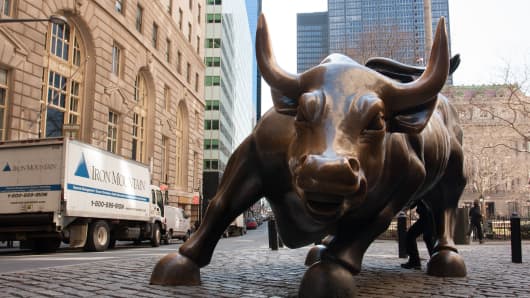Today's wealthy investors seem to have split personalities.
Part of them is brimming with confidence and optimism. Survey after survey shows that they are back to pre-crisis boom years when it comes to their outlook for their own finances, their investments and their retirements.
Then there is the darker side. When it comes to their outlook on the broader economy or in stock markets, they take a dimmer view.
This contrast was on view in a recent survey from U.S. Trust. Its "Insights on Wealth and Worth" survey—which polls people worth $3 million or more (one-third of respondents had $10 million or more)—showed that 88 percent of respondents feel financially secure today and 70 percent feel confident about their financial security in the future.



